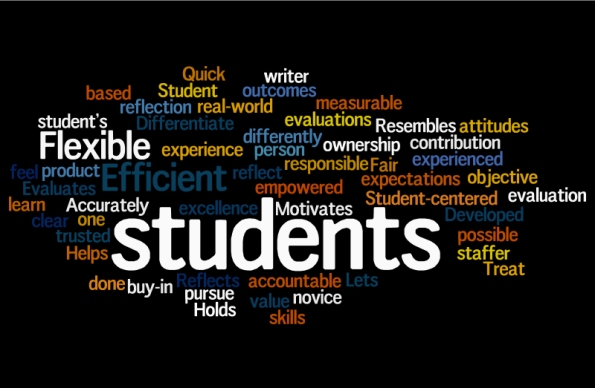Review: Love Medicine, by Louise Erdrich
href=”https://www.goodreads.com/book/show/904286.Love_Medicine” style=”float: left; padding-right: 20px”> Love Medicine by Louise Erdrich
Love Medicine by Louise Erdrich
My rating: 4 of 5 stars
I have loved reading other Erdrich books, most notedly, Master Butcher’s Singing ClubandThe Round House. This is one of her earlier books, but it is incredibly well crafted. The book opens with a wild scene – a family reunion – that left me bewildered. These characters all seemed to have interesting back stories and multiple connections. I wondered if I’d ever figure them out. The book then goes back in time to provide the answers. This story of life in a Chippewa reservation had moment of both heartbreak and humor, and I left feeling that I had better understanding of human nature.
I am going back to back with Louise Erdrich. The Night Watchman is my next read and considering the buzz it is getting, it may be her best yet.
Grading the journalism production class

How do you assign students grades in a class where students have different assignments and are performing different roles?
That is one of the most persistent issues facing a publication adviser and the topic we will be addressing at the Winter Professional Development day tomorrow afternoon at the Meredith Corporation in Des Moines. Paul Jensen of IHSPA asked me to lead this round table discussion.
In preparation for this discussion I asked the JEA Help listserv what were a few words to describe the idea grading system, and I tabulated their responses to this list, that we will expand on in the discussion.
-
According the JEA Help, an ideal grading system must be….
- Flexible
- Efficient use of teacher time
- Treat a novice writer differently than an experienced one
- Lets students feel empowered and trusted
- Helps students learn from the experience
- Is a reflection more than evaluation
- Resembles evaluations done in the real-world
- Differentiable
- Motivates students to pursue excellence
- Evaluates each staffer only on what that person is responsible for
- Developed with the staffers so that there is buy-in from them
- Holds students accountable
- Accurately reflect each student’s contribution to the product
- Is as objective as possible, based on clear, measurable outcomes & expectations
- Reflects the skills & attitudes you value.
- Student ownership
- Student-centered
- Flexible
- Efficient
- Quick
- Fair
These are the terms I used to assemble the Wordle at the top of this post.
So what are some other words you would add?
- Easy
- SRG: Standards Referenced Grading
A brief online search provides some help:
- From JEA C:JET
- From SchoolJournalism.org
- Sandra Coyer Prezi
- North Carolina standards
- Iowa Core Employability Standards
The approach I used that incorporated much of this:
Q & A
Q: How did the system work?
A: We worked in a 12-week trimester, and finished an issue each 4 weeks. After the first issue students did a self-evaluation and reflection using the standard-based rubric. Students needed to document each main area with evidence from their work on staff. This was repeated after the second issue, with the addition of peer-review from the editors they worked with. After the third issue of the term, they repeated the self and peer reviews, and I added my own comments and a term grade.
Q: Did students always agree with the assessments and grade?
A. Almost always, but there were exceptions. I encouraged students to appeal any assessment, and I changed grades if necessary. The editors who gave feedback on the assessment were part of these discussions.
Q: How did parents respond to this grading system?
A: We used this system with the PowerSchool system that opened grade books to parents and students to see a grade in progress at any time. Even though parents could not see a letter grade until the term was over, they accepted the system when I posted all the information in the course description they saw within PowerSchool. Students liked knowing how grades would be determined and that grading was directly related to the jobs they were trained to do on staff.
Introduction to Press Law and Ethics
This lesson was prepared for the students in Ms. Laytem’s class at New London high school. It is based on lessons on JEA.org and SPLC.org.
The Constitution of the United States is the foundation of our republic, and the First Amendment of provides the foundation of our rights as citizens here. Do you know Five Freedoms are expressed in the First Amendment? Can you list them from memory? Find the text of the First Amendment here: first-amendment-text and list the Five Freedoms on your notes.
The Student Press Law Center is a nonprofit corporation devoted to education and protection of the rights of student journalists like yourselves. Its website has a wealth of material for you to study to become better informed on your rights. We’ll start our exploration here.
Our next step will be to look at journalistic ethics and how these relate to our rights and press law. We will be using a lesson called Making TUFF Decisions from the JEA.org curriculum website.
Teaching Journalistic Reporting, Writing & Editing

Students from the 2012 class of Teaching Journalistic Reporting, Writing and Editing gathered in front of Adler Hall, July, 2012.
Iowa Summer Journalism Teacher Workshop, July 23-27, 2014
I am happy to return to the University of Iowa campus to teach this workshop again. I taught this class when it was last offered in 2012, and have previously taught other workshops for teachers and a variety of sections of the student workshops.
Teaching this workshop takes me full circle because I began my journalism teaching career by taking this workshop from legendary Davenport Central adviser Rod Vahl back in 1985. As much as journalism has changed on the decades since then, many of the things Rod taught us are just as important today; these include:
- Producing writing that is clear, concise, and stylistically correct.
- Firsthand information gathering, including careful observation and interviewing the right sources to provide readers with good information.
- Adopting the rhetorical forms and story structures readers and publications demand.
- Learning what makes a story newsworthy and providing readers with the information they need.
This will be at the heart of what we do this week, and in addition to learning how to produce this writing ourselves, we’ll learn some strategies for organizing journalism classes and teaching these skills to students.
I am not sure what background in journalism you bring with you into this course. We will discuss that soon enough. Maybe some of you are as nervous as I was taking the course. Then I had my BS In English Teaching from UNI and an MA in English Education from Iowa, but I had no experience writing for a newspaper beyond some free-lanced articles. I had never done interviews, and I had no idea what a lead was or how to structure an inverted pyramid story. Rod Vahl got me through that week, and I promise to get all of you through this one. Let the adventure begin!
Groundhog Day: offer readers something better than they expect
With the death of Harold Ramis, the comic genius behind so many of my favorite films, I’ve been reminded of Groundhog Day, one of his best films. In that film the main character, a TV weather man, is caught in a time loop that finds him waking up each day to find it’s Groundhog Day all over again.
Too many of our school newspapers and yearbooks read this way with obligatory stories done in much the same way every year. As a contest judge, I often feel like Bill Murray’s character in the Ramis film, asking myself whether I just read this story a few minutes ago.
I wonder if a similar feeling motivated Washington Post writer Keith Richburg in October of 2000. His story, “Barak may halt peace process” reads much like so many of the stories of the ongoing conflict between Israel and Palestinian protesters in the troubled middle east. Instead of stopping there he took a new approach with another story on the same topic, “Death in the afternoon.” In this story, instead of official statements and quotes from all the right sources, he uses the power of personal observation, dialogue and story telling to take readers to the scene of a violent protest. His use of time as a rhetorical device is very effective. The first story is forgettable, the second is riveting. I have linked to both stories below.
Teachers and student editors might use these two stories as part of a discussion about how powerful first-hand observation can be in reporting. I’d recommend asking reporters to read both stories and start with a open-ended discussion about the impact of both stories. I did that often and may students often said they couldn’t force themselves to finish the first story and couldn’t tear themselves away from the second.
To apply this lesson, it’s as easy as looking at the last issue’s stories, or the list of story ideas for the next issue, and ask, “Which of these offers us the opportunity to do first hand reporting?” I think your students will agree that they’d much more enjoy writing those stories, and I know your readers will enjoy reading them. Why not offer readers something more?
Journalism contests & evaluation services
The Iowa High School Press Association asked me to share my thoughts on why contests and evaluation services are among the best ways to grow a journalism program, and provides some tips on making the process easier. They have posted the article on their website here.
YAOY bright spot in bleak news from North Carolina
Yesterday, it was announced that one of my teaching friends in North Carolina, Brenda W. Gorsuch, won the JEA’s Yearbook Teacher of the Year award. I hope that brings some joy to Brenda and her colleagues in a year of bleak news for North Carolina teachers. Why should we be concerned about what’s happening in a state so far away? Because it is part of a national attack on public education, and we are not immune. http://dianeravitch.net/2014/01/06/what-educators-in-north-carolina-say-about-recent-legislative-changes/
Information Graphics – On-the-spot JEA Write-off moderation
This afternoon at 4 p.m. at the Fall Convention in Boston I will be moderating the On-the-spot JEA Write-Off contest in Information Graphics. This short presentation will be part of that moderation. Thank you to all the participants, and best wishes for the judging.
Information Graphics moderation
Creating Infographics with Adobe Illustrator
Take 5: Essential skills for every photojournalist
 This short presentation introduces the five skills every photojournalist needs to contribute to a publication.
This short presentation introduces the five skills every photojournalist needs to contribute to a publication.
The five essential skills:
-
Handle a camera with mastery
-
Using a documentary approach, tell stories through interesting photos
-
Crop photos to improve the composition
-
Save and file photos correctly
-
Color balance and tone images
Download the presentation here:Take 5 Basic photo skills v.2
